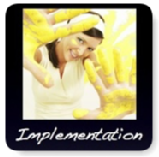All 2 entries tagged Workshop
View all 36 entries tagged Workshop on Warwick Blogs | View entries tagged Workshop at Technorati | There are no images tagged Workshop on this blog
August 13, 2009
How to film your brilliant idea – session evaluation
Follow-up to How to film your brilliant idea – workshop slides and example video clips from Inspires Learning - Robert O'Toole
What actually took place in the experimental teaching space in the session? (Type of learners involved, the use of physical space, and the methods, resources and technology you employed.)
Learning objectives:
1. To appreciate the enabling constraints provided by the short online movie format.
2. To understand how a short online movie can be constructed to serve a rhetorical or informational purpose.
3. To understand the 3 part narrative arc format.
4. To learn how to use iMovie09 on an Apple iMac to create footage and edit a movie.
Students:
Six early career administrators from an externally facing admin department.
Session format:
Short presentations, with Keynote slides and clips from example videos (available online). Hands-on work in teams of 3. Each team had an Apple iMac and a Sanyo Xacti HD video camera.
Spatial format:
For the short talks, the students gathered around the projection screen at the back of the space. Presentations were run from an iMac on a table at the front. This was semi-partitioned with curtains and a white board. Each video editing suite was placed on a table, close together, in the middle portion of the room. The front end of the room was setup as a space for filming interview footage, with additional studio lighting. This was demonstrated but not used (due to time constraints).
The presentation iMac was connected to an external video camera, as well as two border mics mixed through a Belkin TuneStation. This was an experimental attempt to record the presentations using Screenflow. However, the recording was lost as a result of a software error.
How well did the session promote and achieve student learning, relative to the learning outcomes?
The learning objectives were achieved, with the students reporting to have found the session useful and enjoyable. Student personal state descriptors were used, on an experimental basis, at three key transitional points during the session (see the results here). The responses were largely positive, with the students reporting to have felt inspired and challenged. The responses indicate a small decline towards the end of the three hours.
What did you, as a tutor, learn? How do you consider the experience will affect your future teaching practice?
An inspirational effect resulted from tight integration of short example video clips and a well designed Keynote presentation. The students were amazed at what they could achieve with iMovie. However, they did go a bit too far in exploiting the creative potential of every available feature.
What advice would you give to colleagues considering similar approaches?
Use Keynote. Use iMovie. Keep it fast paced.
July 27, 2009
How to film your brilliant idea – workshop slides and example video clips
Here are the slides and example video clips used in the workshop that I teach to introduce people to creating short online films. The workshop uses iMovie 09, making all of the techniques illustrated in the clips achievable even by those without previous experience (cut aways, picture in picture, sound effects, titles, transitions). The workshop is principally for people wanting to create films that present an argument or an idea, attempting to convince the audience. Note that the participants first create their introduction, then their conclusion, and finally they add the main body of the movie, the narrative. They should be able to create the intro and conclusion within 3 hours, and may even create a complete movie.
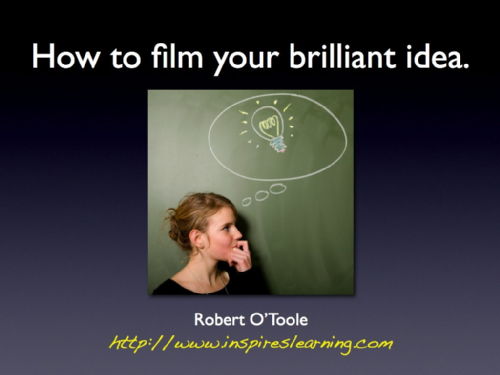
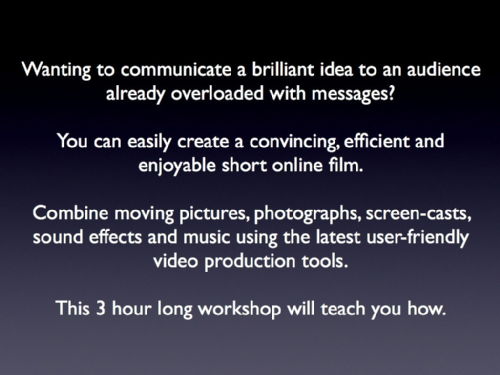
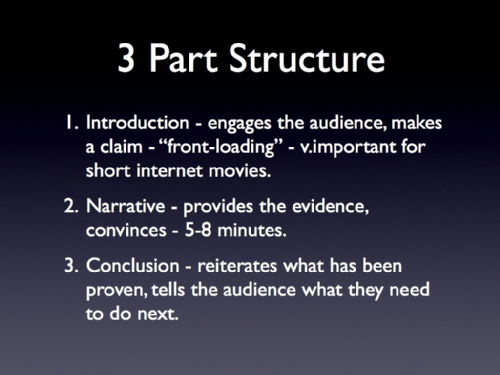
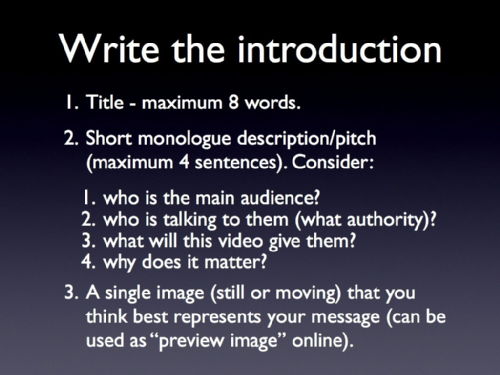
Example introductions
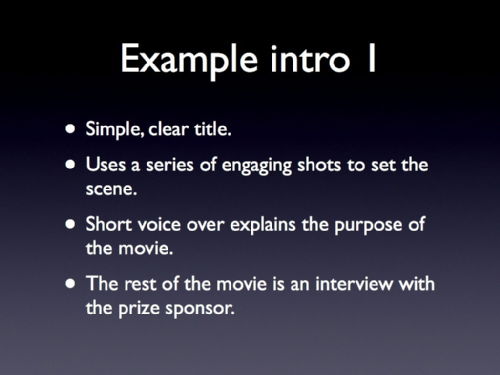
By Michael John Kooy, Philosophy and Literature
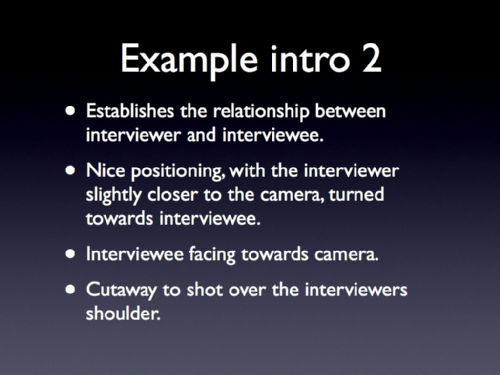
By Stephanie Redding & James Mears, Careers
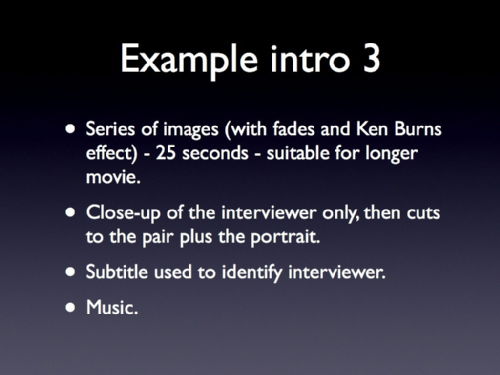
By the Digital Press Office
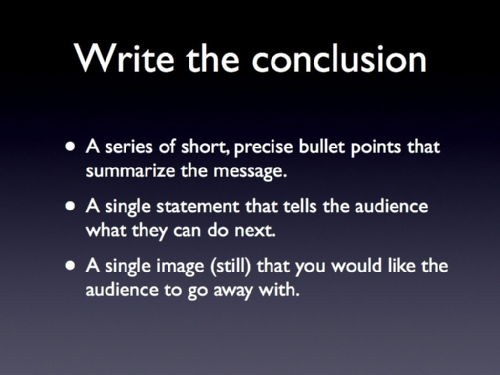
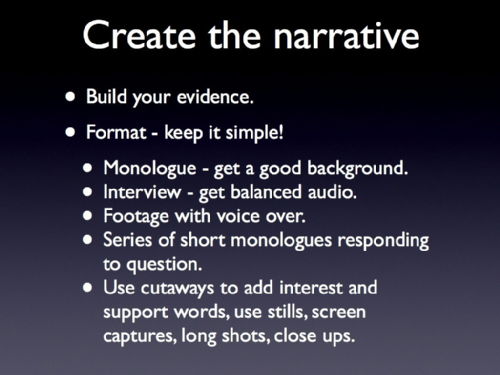
Example narratives
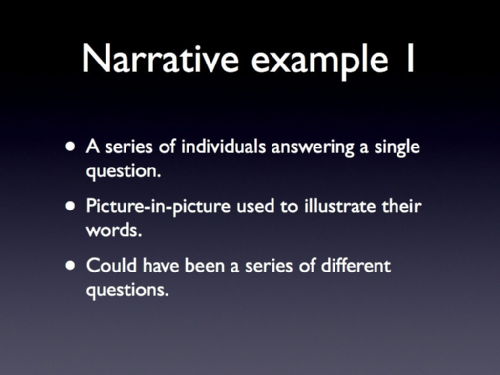
By Douglas Linnsen & Catherine Allen, Arts E-Squad
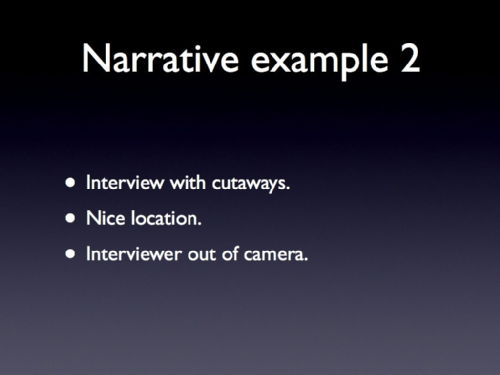
By Michael John Kooy, Philosophy and Literature
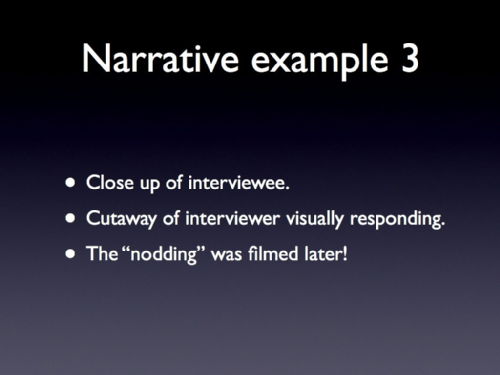
By Stephanie Redding & James Mears, Careers
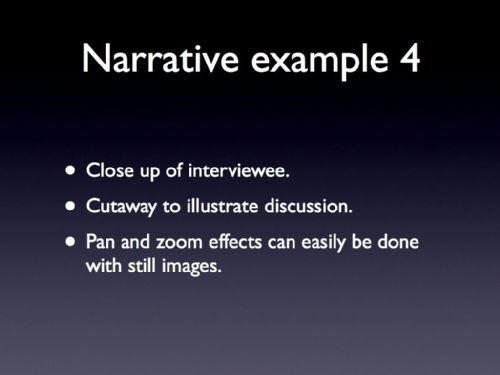
By the Digital Press Office
 Robert O'Toole
Robert O'Toole

 Please wait - comments are loading
Please wait - comments are loading


